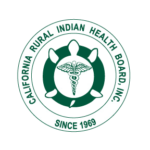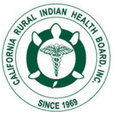The California Rural Indian Health Board (CRIHB) and the Native Connections Program and Substance Abuse and Suicide Prevention Program believe that suicide and suicidal behavior are preventable. Many California Tribes and Tribal communities are already implementing programs that successfully reduce factors known to contribute to suicide and strengthen factors known to help protect them against suicide. The approaches taken by many communities are based on the public health model, which means that they are proactive and holistic.
- Suicide is preventable. The vast majority of people who die by suicide have undiagnosed underlying mental health issues or concerns, which research demonstrates can be successfully treated. Early identification and access to care are essential.
- Prevention must be a collaborative effort. The entire community must share the responsibility of identifying and getting those at risk into needed services. Broad awareness of warning signs of suicide will increase appropriate referrals and interventions.
- Promote protective factors will benefit not just in preventing suicide, but in improving the overall health, wellness and safety of our tribal communities. Risk factors can be used to design services for our communities as well as for individuals. Likewise, communities that build and support
- Promoting healing and reducing risk following a suicide (postvention) for both individuals and communities is an important component of suicide prevention efforts.
- Significant investments of time and other resources are required to prevent suicide. Focusing on recognized best practices will ensure that these efforts lead to positive outcomes across the lifespan, across the California tribes and tribal communities.
- Suicide prevention must become a part of all of our ongoing work and become embedded throughout our communities including our schools, corrections at all levels and in our workplaces.
Suicide - A Significant Health Problem - MISSION & OBJECTIVES
- Suicide is the second leading cause of death for AI/AN youth ages 15 to 24 in the US.
- Male suicide deaths outnumber female deaths by about 4 to 1.
- Females attempt suicide two to three times as often as males.
- For each suicide death, family and close friends are at higher risk for suicide themselves.
- Many others are affected in a variety of ways, including those providing emergency care to the victims and those who may feel they failed to prevent the death.
Taking action in your community:
Everyone has a role in preventing youth suicide. We hope your role will be to help lead the suicide prevention movement in your community. We thank you for your continued support and look forward to supporting your efforts!
- Tribal leaders and elders can play a key role in breaking down community stigmas and barriers to seeking help for these problems by supporting suicide prevention work, putting policies and procedures in place for effective response across community groups when a crisis occurs, and participating in cultural events and ceremonies to reconnect youth with their culture.
- Programs and school administrators can enact effective policies so at-risk youth can be identified and referred to appropriate community resources.
- Participate in a gatekeeper training or awareness event to learn how you can recognize the warning signs and help a youth in need.
- Youth can support each other by identifying trusted adults to whom they can turn in a crisis and encouraging others to talk to an adult when struggling with suicidal thoughts.
Training and Programs
- Gathering of Native Americans
- Native Youth Leadership Workshops
- Healing Arts Workshop
- Healthy Relationships
- Applied Suicide Intervention Skills
- safeTALK
- Medicine Wheel/Red Road
- Traditional Indian Health Gathering
- Suicide Awareness
- Culture is Prevention
- Historical Trauma
- Fatherhood
- Suicide Screening in Primary Care Settings
Deborah Kawkeka
Training Coordinator
916-929-9761, ext. 1522
dkawkeka@crihb.org



